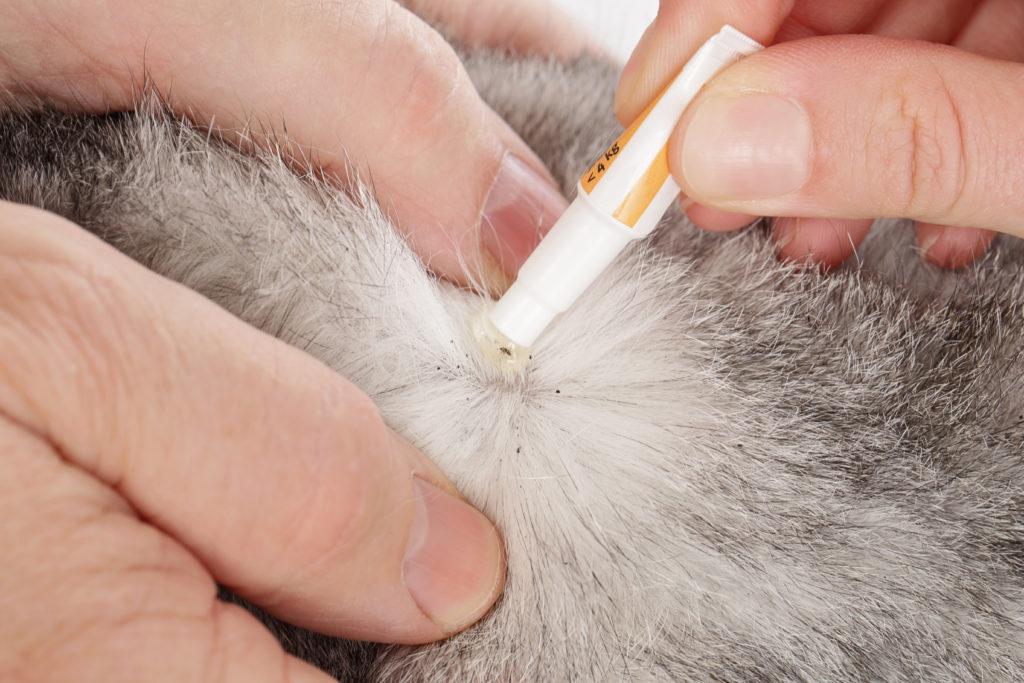Has Your Cat Been Scratching Lately? It Could Have Fleas
Have you thought much about getting rid of fleas? If your cat has been scratching, this could be a sign that it has fleas. It can be easy to tell, but many owners may overlook the problem until it’s too late.
Fleas are common in the fall and can quickly invade your home. It’s important to take the right precautions ahead of time to lessen the chance of fleas. Keep in mind, they can affect you just as much as your cats.
This month we’re going to dive into fleas and how to properly get rid of them. While it may seem like a daunting task, getting rid of fleas isn’t as challenging as you may think. It’s best to get rid of them as soon as possible, as fleas can cause great pain and discomfort.
Signs that You Have a Flea Problem
Of course, scratching doesn’t always mean that your cat has fleas, but it is one of the biggest signs. If your cat is frequently scratching, this is a sign that you should check over its fur for fleas. Fleas will appear as little black dots on the fur or skin. They move and jump, look for small black bugs jumping on furniture or around your cat.
You may not find the fleas themselves, but “flea dirt,” which is their excrement. Depending on the color of your cat, fleas or flea dirt can be hard to see. Using a comb will help to gather the dirt, allowing you to see whether or not your cat has fleas. If you’re struggling, call your vet. They will be able to thoroughly check and help you with proper treatment. Just be sure to let them know that your cat could potentially have fleas. It is easy to infect the rest of the office.
Fleas Can Cause Disease and Extreme Discomfort
Besides making your cat itchy, fleas can bring on disease, skin irritation, and great discomfort. The Spruce Pets breaks down some of the different illnesses or irritation that your cat may experience, including:
Anemia. If your cat has pale gums, weakness, and increased water intake, they could have anemia.
Tapeworms. In order to discover worms, you must check over your cat’s feces and back end. These worms are usually small and white and may look similar to grains of rice.
Haemobartonellosis. Some cats will develop a fever, along with weakness, lack of appetite, and depression.
Hair loss. Shedding can be normal, but if your cat is losing large clumps of hair or has bald spots, this is a sign that something more is going on.
Each of these can lead to severe illness in your cat and can even be fatal. Be sure to make an appointment with your vet if you notice any signs or symptoms of further disease.
Ways to Keep Fleas Away from Your Cat
Fleas can be a hassle. There are some ways to add some extra protection to your home to make sure your pets are safe. A few of these preventive measures include:
- Having your home sprayed by an exterminator
- Use spot flea treatments on your pet
- Place a flea collar on your cat
- Regularly wash bedding, toys, and other items your cat uses
- Keep your cat away from tall grass and leaf piles
- Regularly vacuum and dust your home
While fleas can still intrude on your home and pets, there are a few ways to add a defense during the summer and fall months. Ask your vet about the best flea treatments for cats to keep them safe. WebMD Pets also provides some at-home treatments and precautions for flea season. Be sure to research different treatments, as some do not provide lasting protection.
Using Flea Collars or Drops
All cats are different and may prefer different things. Some cats cannot handle wearing a collar, making drops a better option. If your cat has regular skin issues or doesn’t like to hold still for long, a flea collar may help to keep those pesky pests away.
Also remember to consider longevity. Flea collars can last upwards of three months, while drops and topical treatments may be month-to-month. Consider this when making your choice.
Remember that Indoor Cats Can Get Fleas, Too
As you’re reading this, you may think that your cat is safe because they stay indoors. However, fleas can easily make their way into your home. Clothing, shoes, bags, and other objects coming and going can allow fleas to catch a ride inside. This is why vacuuming, washing bedding, and dusting are so important. Fleas can lay up to 50 eggs per day, meaning that soon your home will be overrun with fleas. Wearing a flea collar or using monthly flea treatments can help to protect your sweet kitty from suffering from fleas.
Visit Veterinarians to Cats for Flea Control
Veterinarians to Cats in Roanoke, VA, can help you to control fleas on your cat. We offer an on-site and online pharmacy for medications for extreme infestations and other health issues. Fleas can do serious damage and irritation to your cat’s skin and health. Be sure to seek treatment right away to get rid of the fleas.
Are you looking for a new veterinarian for your cats? Call Veterinarians to Cats in Roanoke, VA, at (540) 989-1400 or follow us on Facebook for updates. Talk to our veterinarians about getting rid of fleas.

